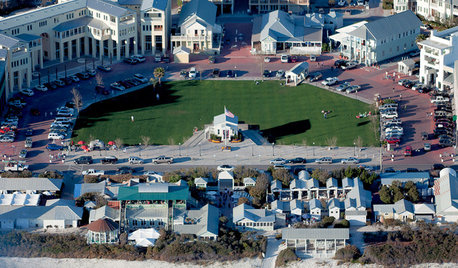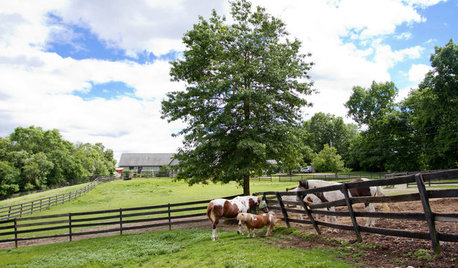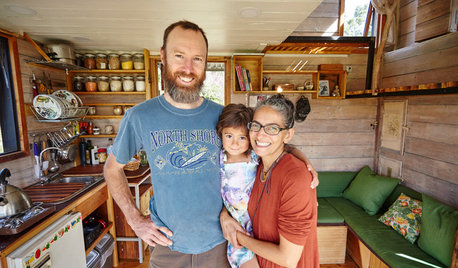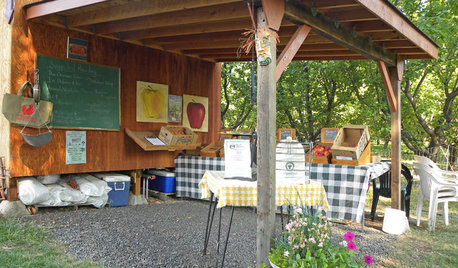Organic Farming Pioneer Obit
althea_gw
18 years ago
Related Stories

COMMUNITYTour a Pioneering Beach Town That Fosters Community
No cars, mixed-use zones, strict building codes ... a new book takes us inside Seaside, a champion of New Urbanism
Full Story
OUTBUILDINGSThe Glass-Walled Cabin That Romance Built
Envisioning sunsets and starry skies, newlywed artists construct a 1-room retreat on a family farm
Full Story
DECORATING GUIDESSo Your Style Is: Rustic
Refreshing in its simplicity, rustic style highlights natural beauty and a rugged, resilient spirit. Is it a match for you?
Full Story
HOUZZ TOURSMy Houzz: A South Australia Home Comes Down to Earth
Rammed-earth walls embrace nature, stand up to harsh coastal conditions and create an indoor-outdoor connection for this artist's home
Full Story
CALIFORNIA GARDENINGCalifornia Gardener's April Checklist
Outsmart droughts with water-savvy plants and sustainable approaches that suit the landscape
Full Story
HOUZZ TOURSHouzz Call: Show Us Your Farmhouse!
Bring on the chickens and vegetable patches. If your home speaks country, it might appear in a featured ideabook
Full Story
SMALL HOMESTiny Houzz Tour: Living the Good Life Their Way
This owner-built home in Australia may be on the small side, but it provides the perfect space for the family’s big dreams to come true
Full Story
HOUZZ TOURSMy Houzz: The Orchard and the Life-Changing Decision
Toxins give way to pure, wholesome produce and passionately green living in this home and orchard in Eastern Oregon
Full Story
GARDENING GUIDESNew Ways to Think About All That Mulch in the Garden
Before you go making a mountain out of a mulch hill, learn the facts about what your plants and soil really want
Full Story
KITCHEN DESIGNHouzz Call: What’s Cooking in Your Kitchen?
Most of us turn to recipes, videos and culinary shows when we cook. Where do you set your cookbook, tablet or TV screen?
Full StoryMore Discussions









althea_gwOriginal Author
marshallz10
Related Professionals
Saint Charles Landscape Architects & Landscape Designers · Woodinville Landscape Architects & Landscape Designers · Brentwood Landscape Contractors · Hartford Landscape Contractors · East Chicago Landscape Contractors · East Lake-Orient Park Landscape Contractors · Federal Way Landscape Contractors · Fort Payne Landscape Contractors · Lemont Landscape Contractors · Mesa Landscape Contractors · Middletown Landscape Contractors · Portage Decks, Patios & Outdoor Enclosures · Spokane Decks, Patios & Outdoor Enclosures · Chesapeake Ranch Estates Stone, Pavers & Concrete · Laguna Beach Stone, Pavers & ConcreteBruce_in_ct
althea_gwOriginal Author